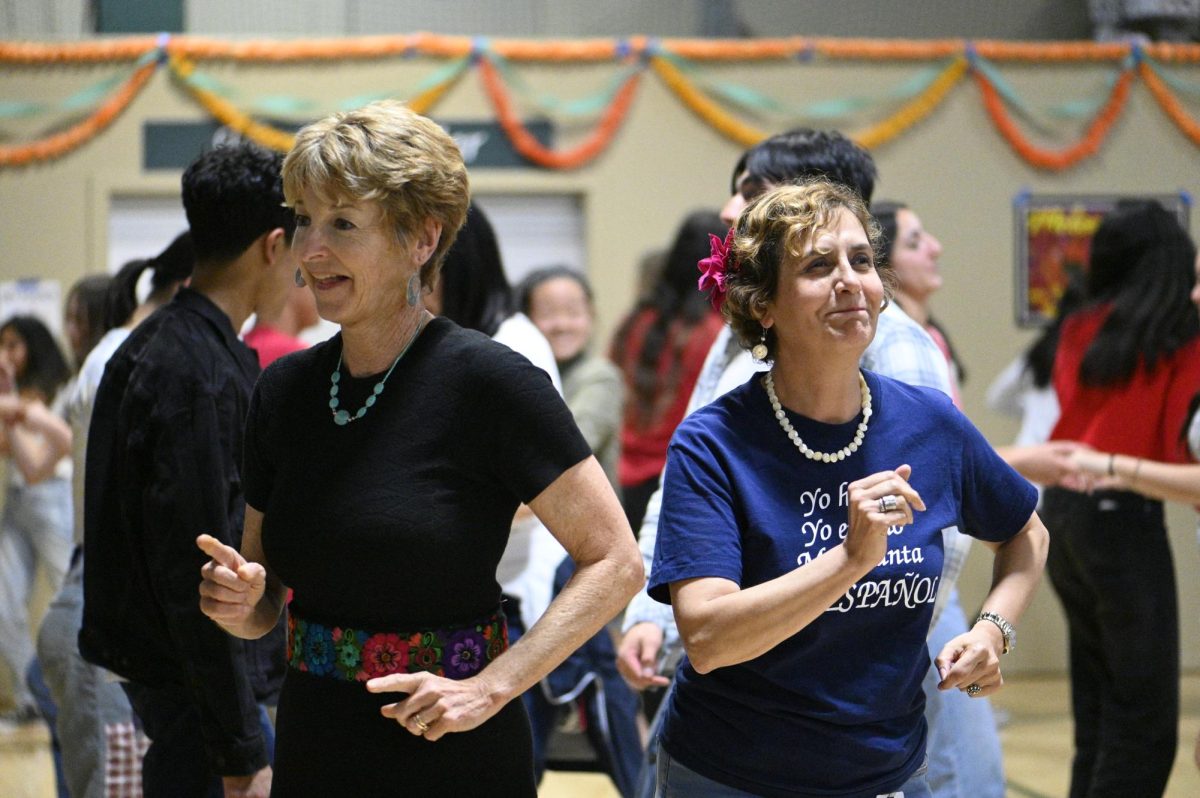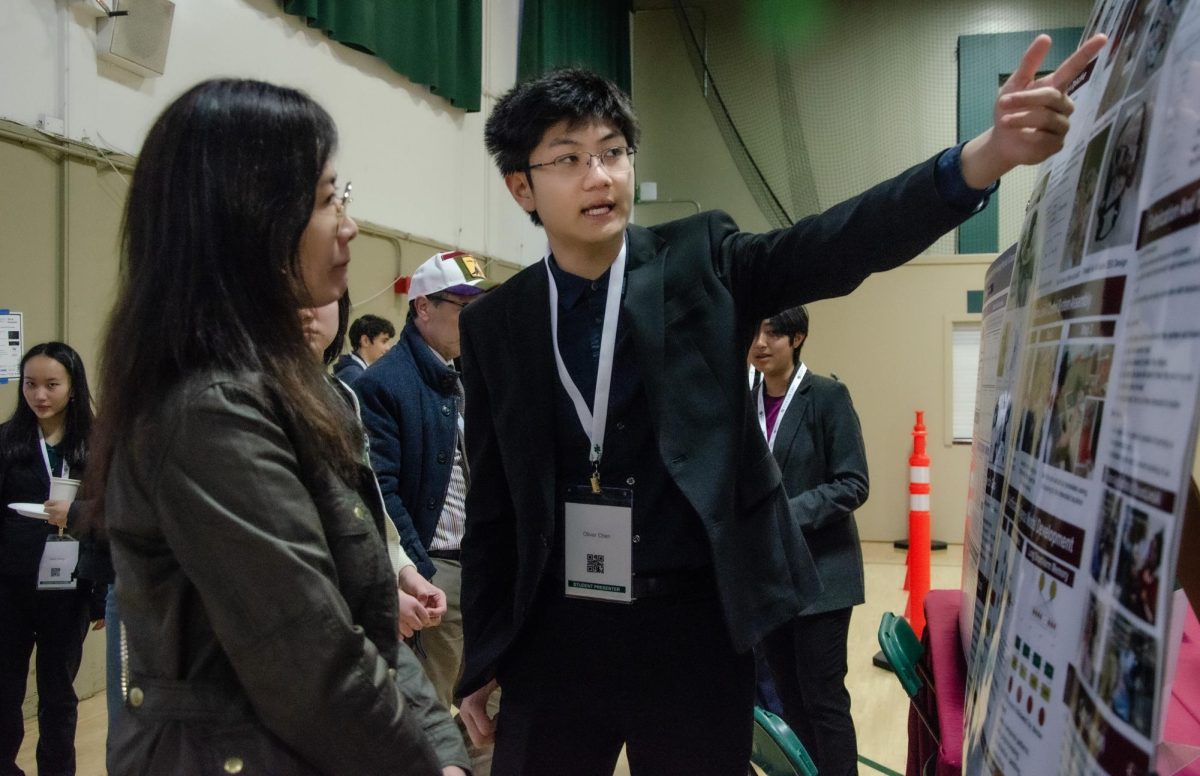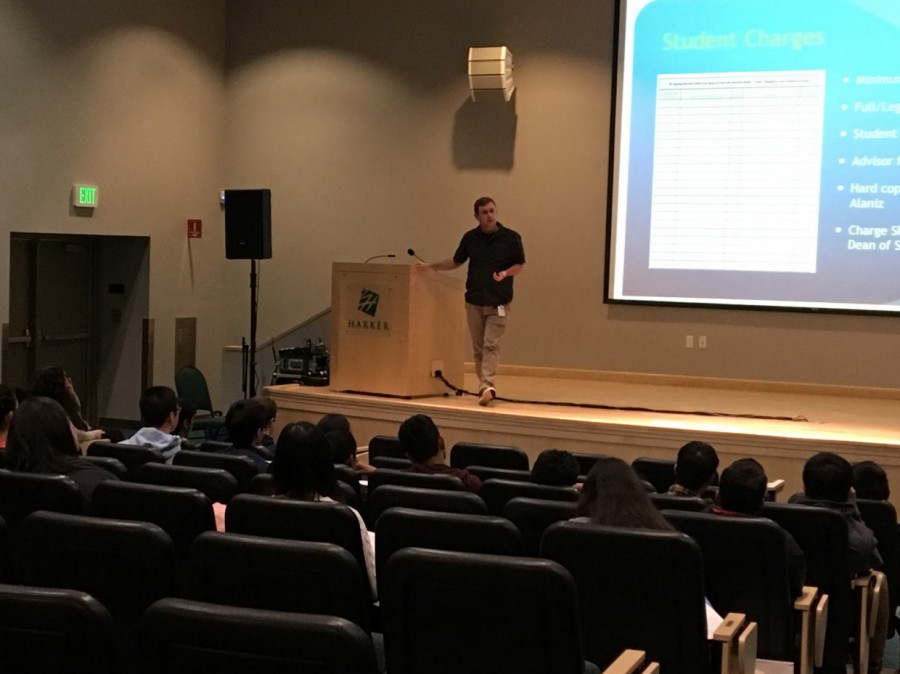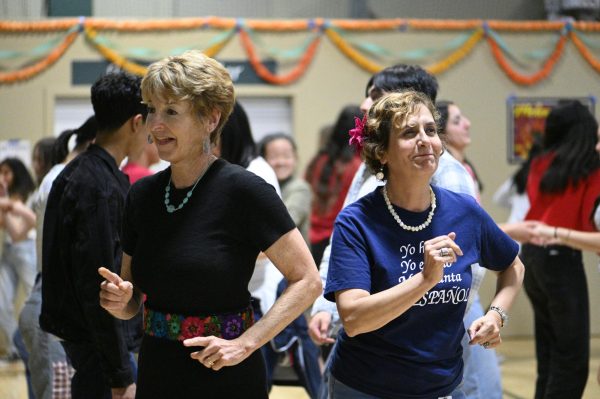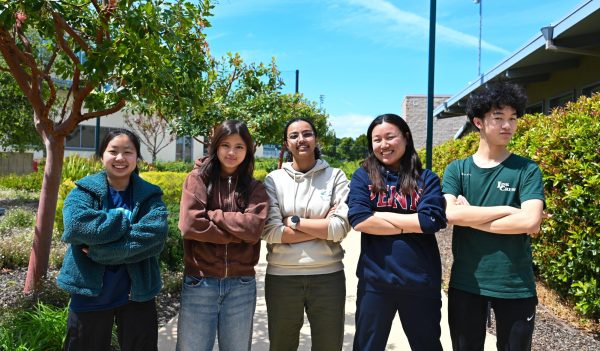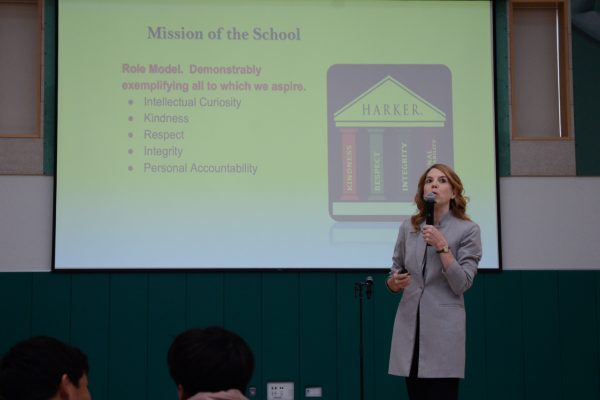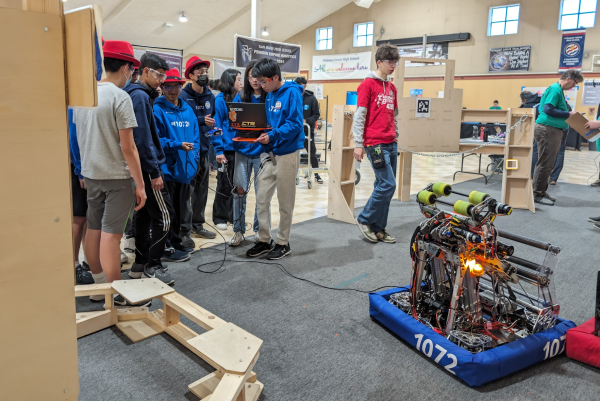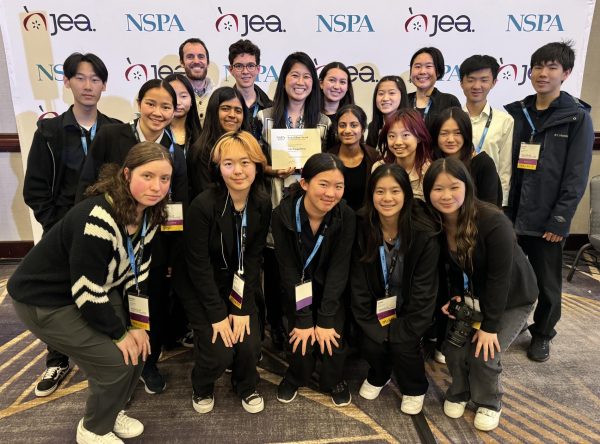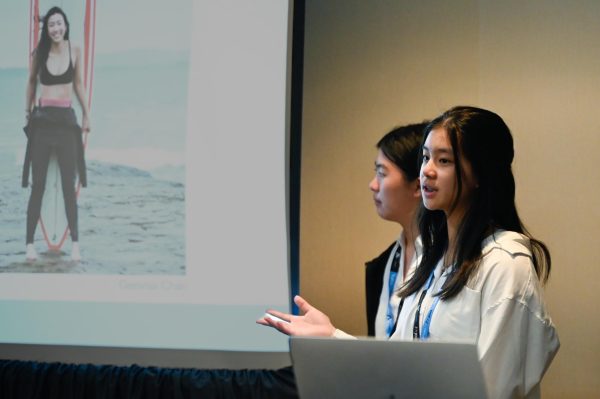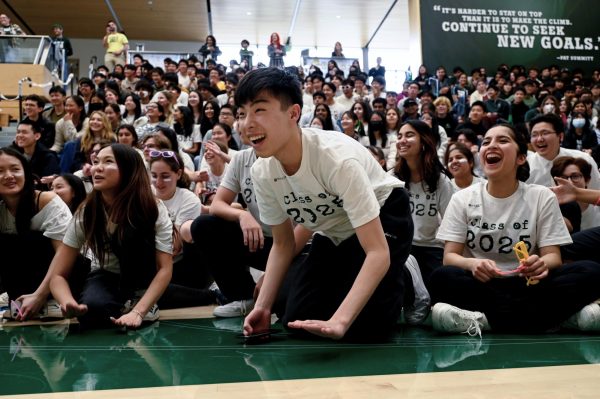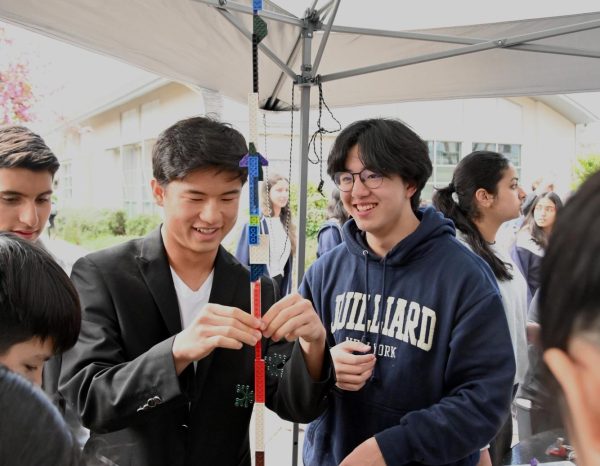Bell schedule leads to club changes
Club coordinator Eric Kallbrier speaks to club officers in a leadership meeting. Under the new pilot bell schedule, a new period was introduced for club meetings on Thursdays.
January 27, 2016
The pilot bell schedule introduced a new period dedicated to clubs. Kallbrier has been holding club leadership meetings in the auditorium during the club period to reinforce the expectations of officers. If the new bell schedule is implemented during the next school year, he will be holding these meetings once a month during this period.
“We’d want to have a club leadership meeting one Thursday per month to talk about leadership, to go over policies and procedures, just to get updates on what clubs are doing so that people can get the most out of their organizations,” Eric Kallbrier, upper school Club Coordinator, said.
Every Thursday throughout January, from 3 p.m. to 3:30 p.m., clubs will have another opportunity to have meetings.
“[The club period] gives an extra opportunity for clubs to meet without having to worry about the impact of sports or other extracurriculars,” Kallbrier said. “A lot of people are involved in multiple clubs, so this gives them just one more chance to not choose between one organization or the other.”
Club officers do see an advantage to having the set club period incorporated as a part of their schedule.
“I think that when it’s more organized like that, like ‘Here’s our dedicated club time, we’re meeting every Thursday from this to this time,’ it’s more structured,” Red Cross Club officer Natalie Simonian (12) said.
Other students feel that setting a time for clubs after school may not be helpful, since members would probably rather go home than stay at school longer.
“I like how the school set aside a time for clubs, but because they set it after academic classes, there’s less of an incentive for people to stay, and so I think we’d be seeing lower member turnout, just because they would rather go home,” Kevina Xiao (12), co-president of Harker Interact said. Interact has not used the period yet for any meetings.
“Some disadvantages are that there’s not as big of a time period for clubs to meet. If every club decides that they want to meet from 3 p.m. to 3:30 p.m. then a lot of people will have conflicts, and that’s something that we’ve been seeing,” Amy Jin (10), an officer of WiSTEM said.
Students have already shown a favorable response to the bell schedule. Administration is extending the trial period by two weeks; it will end on Feb. 15 instead of Feb. 1.
This piece was originally published in the pages of The Winged Post on January 27, 2016.































![Setter Emma Lee (9) sets the ball to the middle during the match against Pinewood on Sept. 12. “[I’m looking forward to] getting more skilled, learning more about my position and also becoming better friends with all of my teammates, Emma said.](https://harkeraquila.com/wp-content/uploads/2023/09/DSC_4917-2-1200x795.jpg)








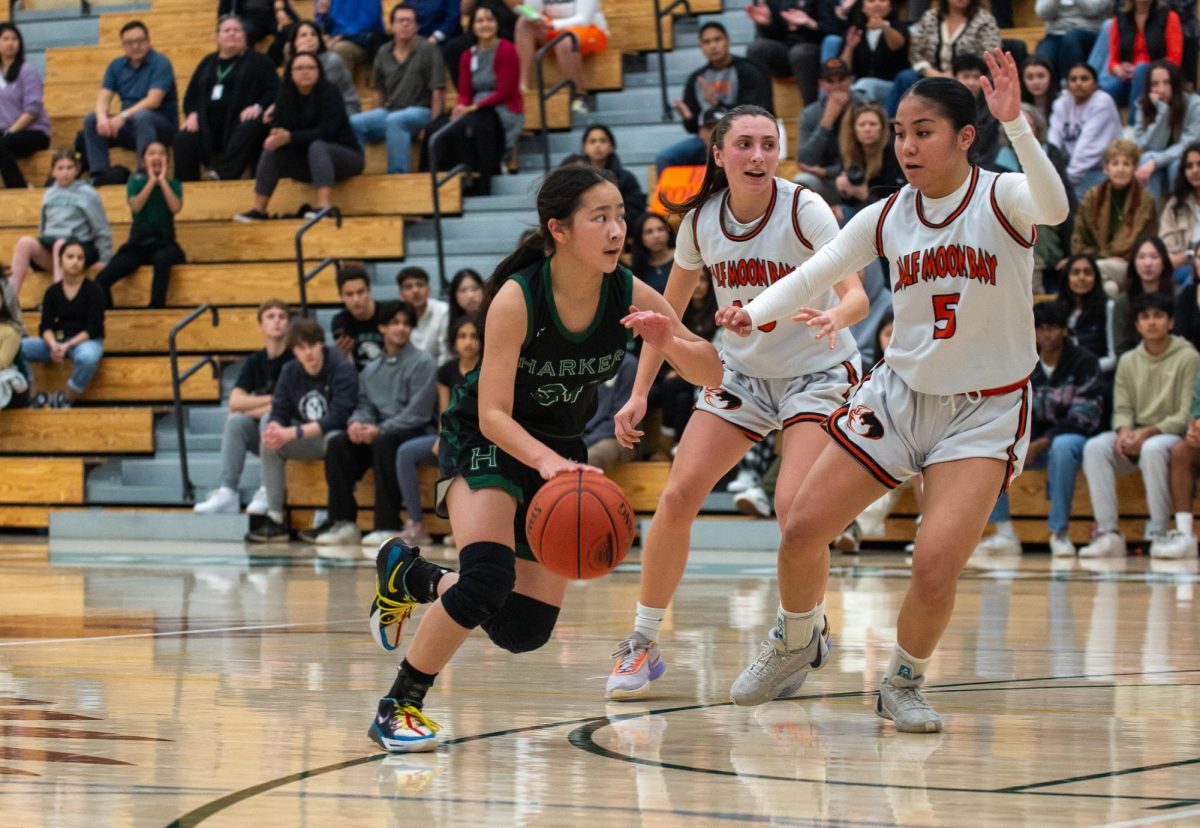


























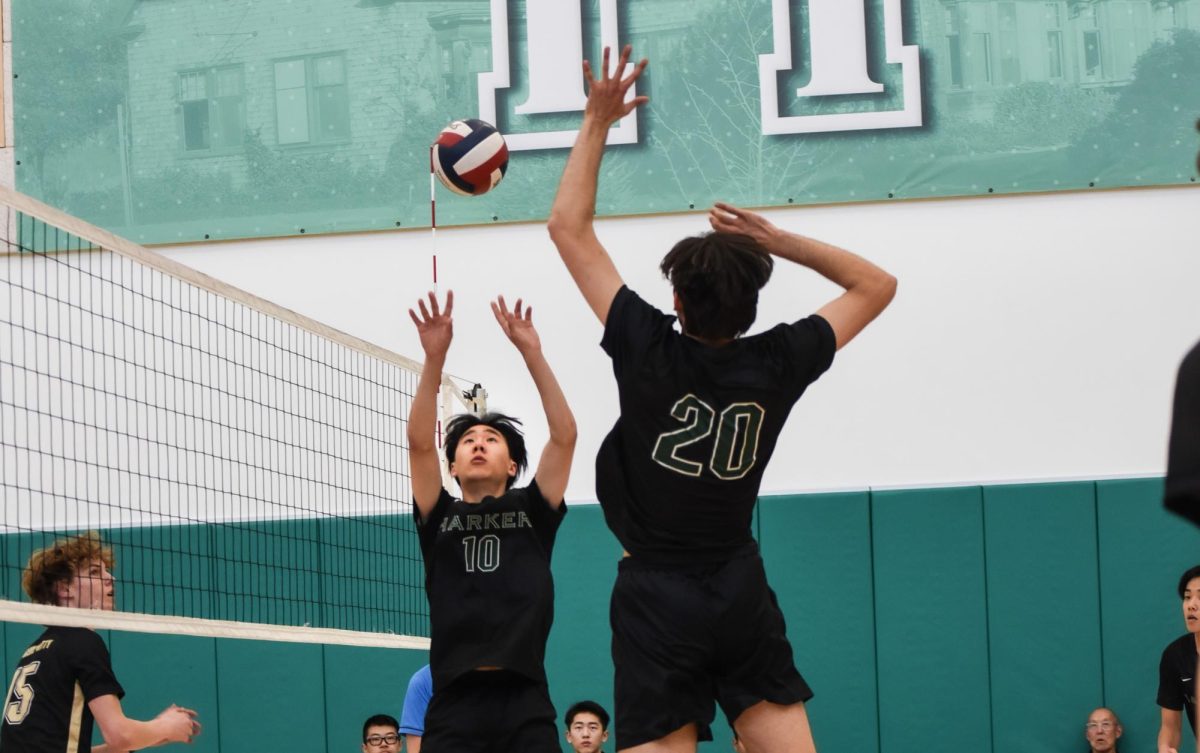
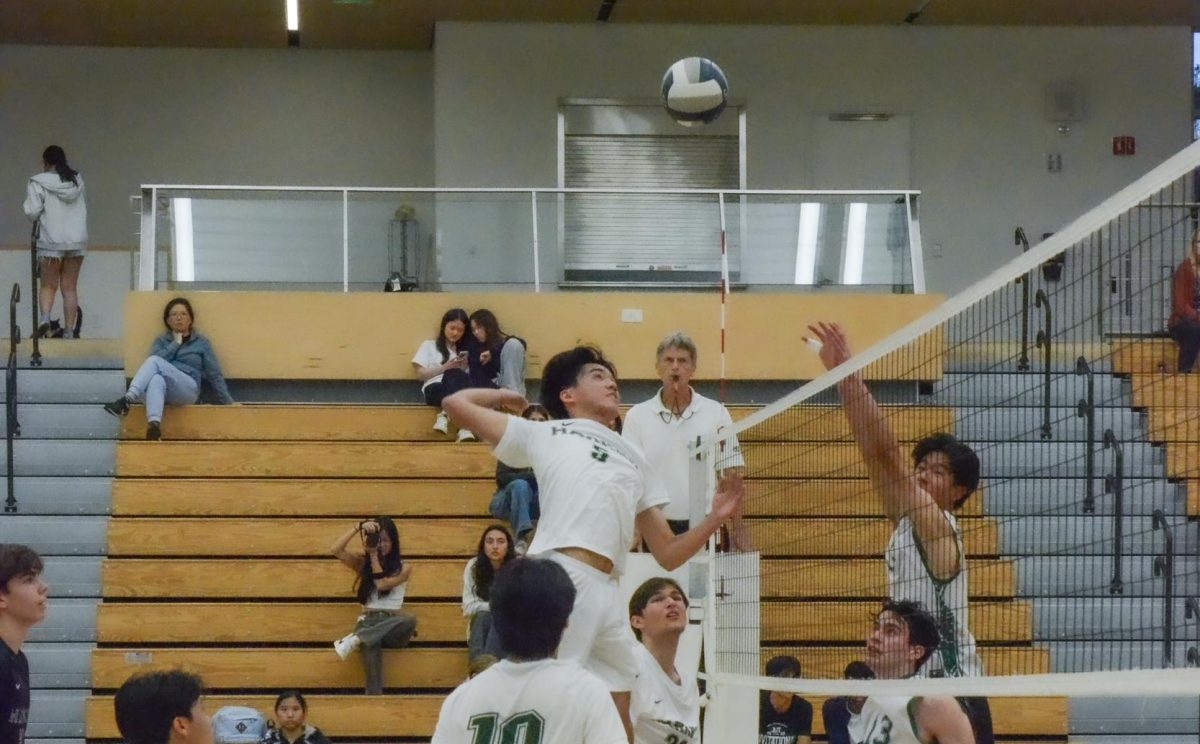
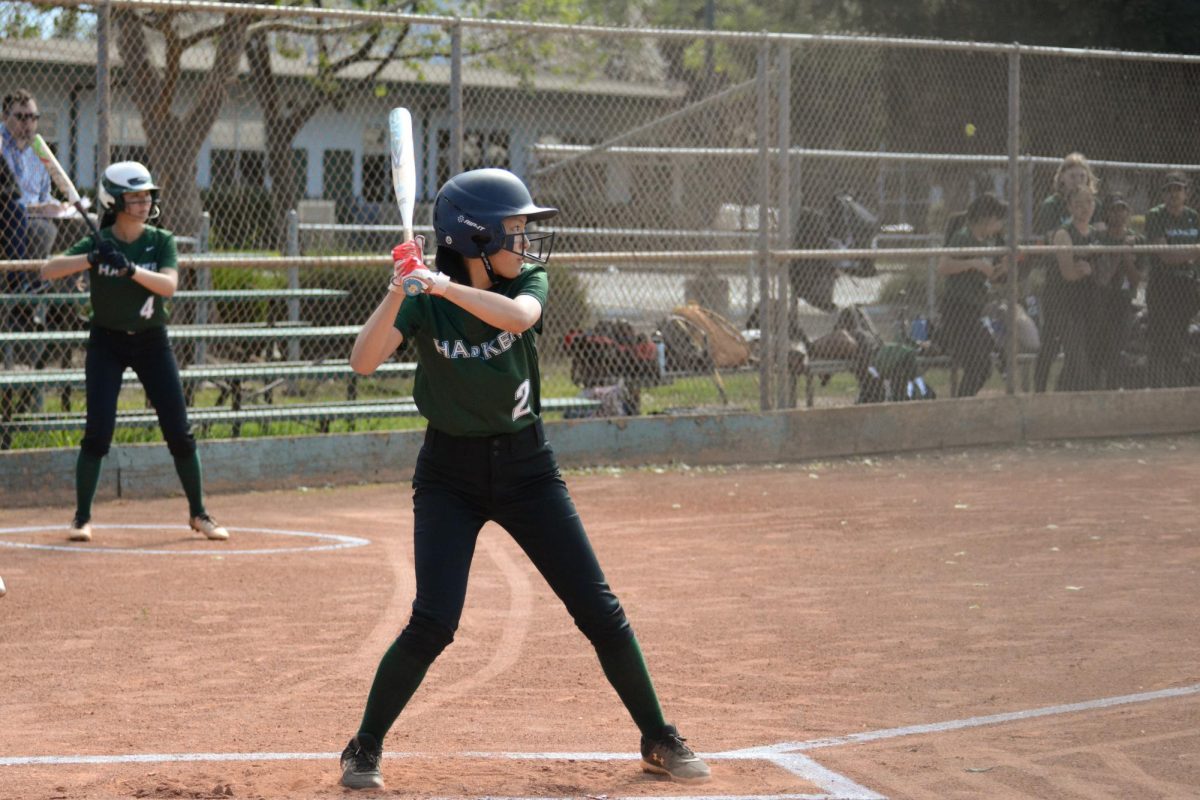



























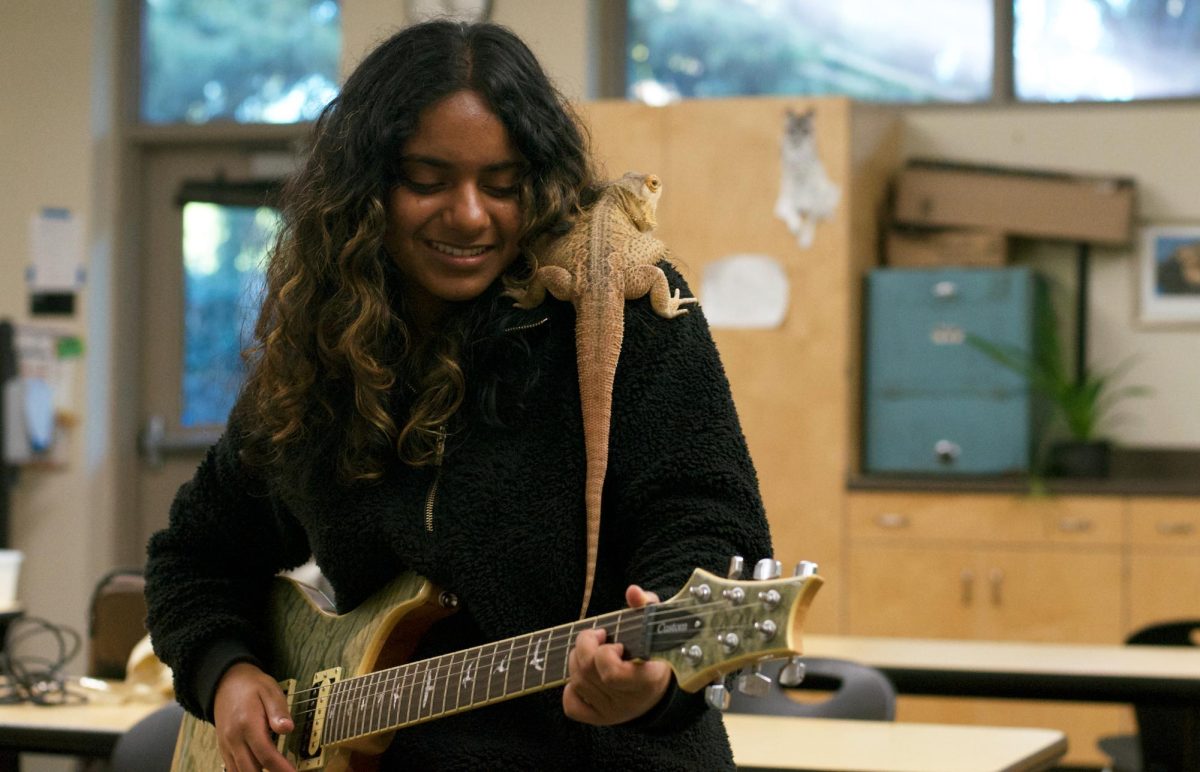
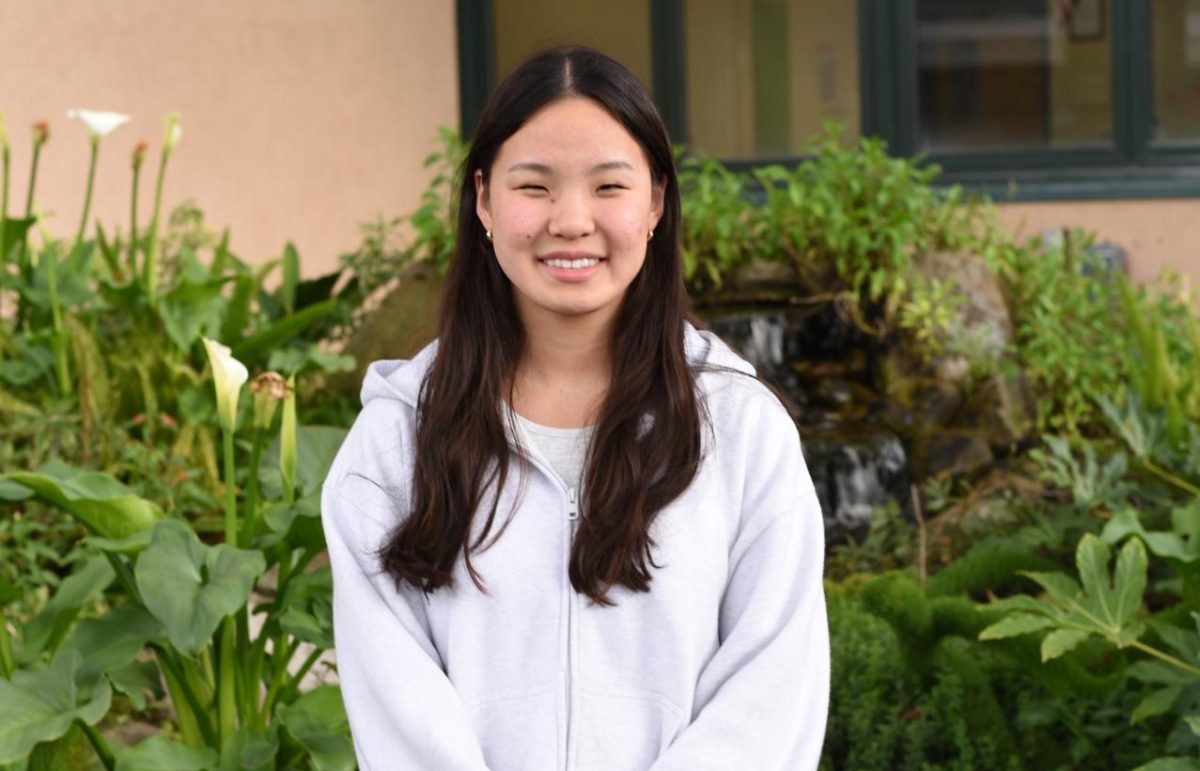












![“[Building nerf blasters] became this outlet of creativity for me that hasnt been matched by anything else. The process [of] making a build complete to your desire is such a painstakingly difficult process, but Ive had to learn from [the skills needed from] soldering to proper painting. Theres so many different options for everything, if you think about it, it exists. The best part is [that] if it doesnt exist, you can build it yourself, Ishaan Parate said.](https://harkeraquila.com/wp-content/uploads/2022/08/DSC_8149-900x604.jpg)


![“Animation just clicked in a way. I had been interested in art, but that felt different. [Animation] felt like it had something behind it, whereas previous things felt surface level. I wasnt making that crazy of things, but just the process of doing it was much more enjoyable, Carter Chadwick (22) said.](https://harkeraquila.com/wp-content/uploads/2022/08/Screen-Shot-2022-08-16-at-9.44.08-AM-900x598.png)


![“When I came into high school, I was ready to be a follower. But DECA was a game changer for me. It helped me overcome my fear of public speaking, and its played such a major role in who Ive become today. To be able to successfully lead a chapter of 150 students, an officer team and be one of the upperclassmen I once really admired is something Im [really] proud of,” Anvitha Tummala (21) said.](https://harkeraquila.com/wp-content/uploads/2021/07/Screen-Shot-2021-07-25-at-9.50.05-AM-900x594.png)



![“[Volleyball has] taught me how to fall correctly, and another thing it taught is that you don’t have to be the best at something to be good at it. If you just hit the ball in a smart way, then it still scores points and you’re good at it. You could be a background player and still make a much bigger impact on the team than you would think,” Anya Gert (’20) said.](https://harkeraquila.com/wp-content/uploads/2020/06/AnnaGert_JinTuan_HoHPhotoEdited-600x900.jpeg)

![“Im not nearly there yet, but [my confidence has] definitely been getting better since I was pretty shy and timid coming into Harker my freshman year. I know that theres a lot of people that are really confident in what they do, and I really admire them. Everyones so driven and that has really pushed me to kind of try to find my own place in high school and be more confident,” Alyssa Huang (’20) said.](https://harkeraquila.com/wp-content/uploads/2020/06/AlyssaHuang_EmilyChen_HoHPhoto-900x749.jpeg)













![“My slogan is ‘slow feet, don’t eat, and I’m hungry.’ You need to run fast to get where you are–you arent going to get those championships if you arent fast,” Angel Cervantes (12) said. “I want to do well in school on my tests and in track and win championships for my team. I live by that, [and] I can do that anywhere: in the classroom or on the field.”](https://harkeraquila.com/wp-content/uploads/2018/06/DSC5146-900x601.jpg)

![“I think getting up in the morning and having a sense of purpose [is exciting]. I think without a certain amount of drive, life is kind of obsolete and mundane, and I think having that every single day is what makes each day unique and kind of makes life exciting,” Neymika Jain (12) said.](https://harkeraquila.com/wp-content/uploads/2017/06/Screen-Shot-2017-06-03-at-4.54.16-PM.png)





